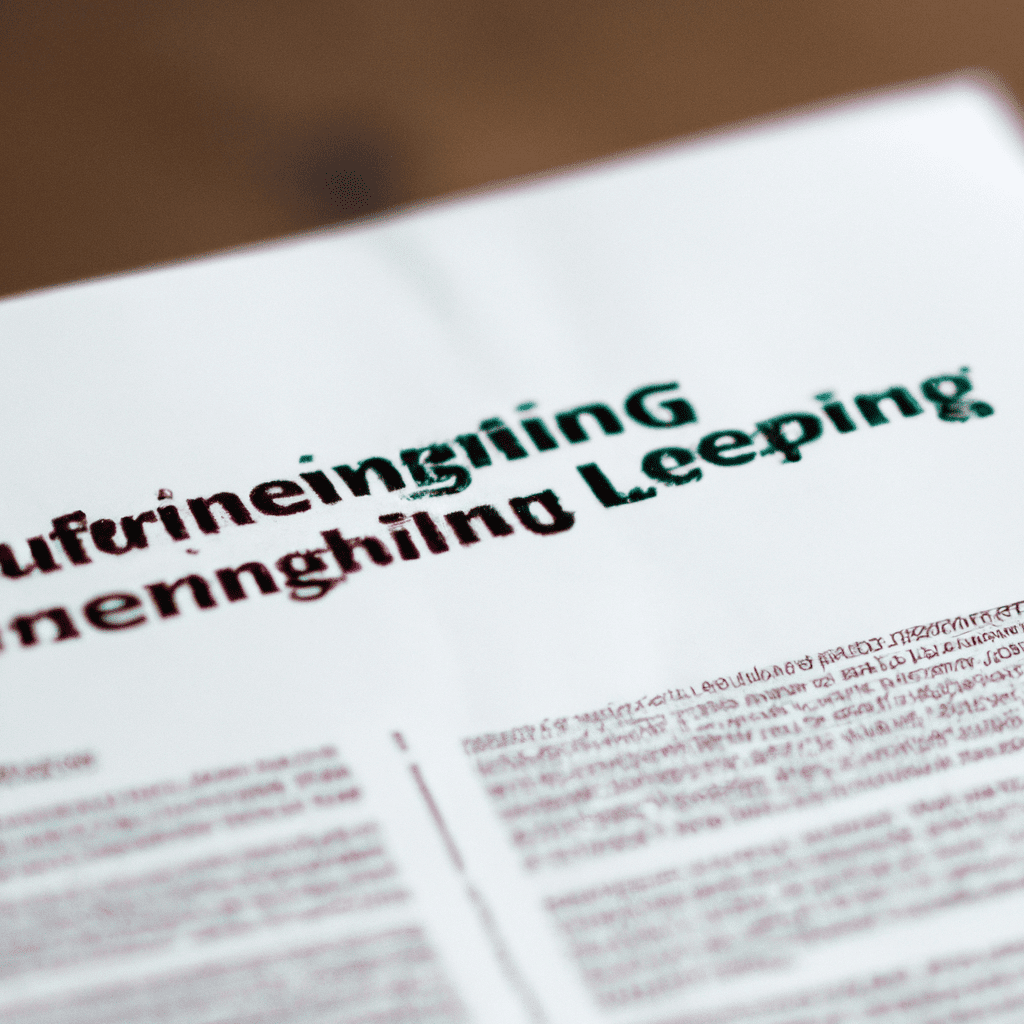Germany, renowned for its rich culture, picturesque landscapes, and exceptional quality of life, has long been a choice destination for expatriates seeking new opportunities. However, before making the leap to this thriving European nation, it is crucial to have a comprehensive understanding of Germany’s living expenses. From accommodation costs to grocery prices and transportation fees, a clear comprehension of the country’s financial landscape is essential for anyone looking to settle in Germany and maintain a comfortable lifestyle. In this article, we walk you through the various aspects of Germany’s living expenses, providing you with the information you need to make informed decisions and plan your finances effectively. Whether you are considering a short-term stay or a long-term relocation, this article equips you with the necessary knowledge to navigate Germany’s unique financial landscape smoothly.
Cost of Housing in Germany: An In-depth Analysis of Rental Prices and Property Market Trends
In this section, we will delve into the intricate world of housing costs in Germany, shedding light on rental prices and providing an overview of the property market trends.
Rental Prices:
When it comes to renting in Germany, various factors influence the cost of accommodation. Considerations such as location, property size, and amenities play a crucial role in determining rental prices. Here are some key points to keep in mind:
- Major cities such as Berlin, Munich, and Hamburg tend to have higher rental prices compared to smaller towns.
- Rental costs can vary significantly between districts and neighborhoods within cities.
- Additional factors like proximity to public transportation, schools, and shopping centers can also impact rental prices.
It is worth noting that rental prices have experienced an upward trend in recent years due to increased demand and limited housing availability.
Property Market Trends:
Germany’s property market has witnessed a dynamic landscape, shaped by various trends and economic factors. Here are some insights into the current market scenario:
- The demand for residential properties in Germany remains strong, driven by factors like population growth and low interest rates.
- Investing in real estate has been an attractive option for both domestic and international buyers, contributing to the overall competitiveness of the market.
- Urbanization and a shift towards flexible work arrangements have led to an increased demand for smaller, affordable apartments.
Despite these trends, it is important to note that the German property market can also experience regional variations, with different cities and states exhibiting unique dynamics.
Conclusion:
The housing costs in Germany exhibit a diverse range of factors that dictate rental prices and influence property market trends. Whether you are looking to rent or invest in real estate, thorough research and local market knowledge are essential to navigate the intricacies presented by different regions and market dynamics.

Understanding Daily Expenses: Unveiling the True Cost of Food, Transportation, and Utilities in Germany
When it comes to daily expenses, understanding the true cost of essential items can help individuals make informed financial decisions. Let’s delve into the realities of living in Germany and uncover the expenses associated with food, transportation, and utilities.
1. Food:
Food expenses in Germany vary depending on one’s personal choices and lifestyle. On average, a monthly grocery bill for a single person can range from €200 to €400, depending on factors such as eating habits and location. However, cooking meals at home can significantly reduce costs compared to dining out.
German cuisine is diverse, and there are affordable local ingredients available at supermarkets and weekly markets. Opting for seasonal produce and exploring discount stores can help stretch your budget further. Remember, cooking at home not only saves money but also allows you to explore German recipes and savor traditional flavors.
2. Transportation:
Transportation costs in Germany vary depending on the city and the distance traveled. Fortunately, Germany has an excellent public transportation system, including trains, trams, buses, and subways. Monthly transportation passes range from €50 to €100, depending on the region and ticket type.
For those who prefer cycling, Germany is known for its bike-friendly infrastructure. Many cities have bike-sharing systems, and purchasing a bicycle can be a cost-effective and healthy means of transportation. It is worth mentioning that fuel prices in Germany are higher compared to some other countries, so owning a car entails additional expenses such as insurance, maintenance, and parking.
3. Utilities:
When it comes to utilities in Germany, it is crucial to consider the costs associated with electricity, heating, water, and internet. On average, monthly expenses for a small apartment can range from €100 to €200, depending on usage and location. It is recommended to compare different providers to find the best rates and potentially save some money.
Additionally, individuals can reduce their utility bills by adopting energy-efficient practices such as turning off lights when not in use, using energy-saving appliances, and regulating heating systems. Being mindful of utility consumption not only helps save money but also contributes to sustainability efforts.
In conclusion, understanding the true cost of daily expenses in Germany empowers individuals to make informed choices and manage their finances effectively. By being mindful of food, transportation, and utilities costs, one can lead a financially balanced lifestyle while enjoying all that Germany has to offer.

Healthcare Expenditure in Germany: Navigating Insurance Policies and Medical Costs with Ease
Understanding the healthcare expenditure in Germany is crucial for residents and expatriates alike. With a comprehensive system providing universal coverage, it is essential to navigate the insurance policies and medical costs with ease. Here, we delve into important aspects and tips to help you stay informed and make confident decisions regarding your healthcare needs.
1. Understanding the Insurance System
Germany’s healthcare system is primarily funded through statutory health insurance (Gesetzliche Krankenversicherung) or private health insurance (Private Krankenversicherung). Depending on your income, employment status, and personal preferences, you may be obligated to enroll in one of these insurance schemes. Statutory health insurance is compulsory for employees earning below a certain income threshold, while private health insurance is chosen by individuals with higher incomes or specific professions.
2. Coverage and Benefits
When choosing an insurance policy, it is essential to consider the coverage and benefits offered. Most insurance plans in Germany cover a wide range of medical services, including doctor visits, hospital stays, prescription medications, and preventive care. Additionally, dental coverage and alternative therapies may be included or available as add-ons. Take the time to evaluate your specific healthcare needs and compare different policies to find the one that best meets your requirements.
3. Managing Medical Costs
While healthcare in Germany is generally of high quality, it’s important to be mindful of medical costs to ensure financial stability. Here are a few strategies to help manage expenses:
- Regularly assess your insurance policy to ensure it aligns with your changing needs.
- Be aware of co-payments (Zuzahlungen), which are small fees paid by patients for certain treatments or medications.
- Consider supplementary private health insurance plans to cover any gaps in your statutory insurance.
- Utilize preventative care, such as screenings and vaccinations, to avoid more significant health issues in the future.
By understanding the intricacies of insurance policies and actively managing medical costs, individuals in Germany can confidently navigate the healthcare system and ensure their well-being without financial strain.
Cracking the Code: Unraveling the Education Costs in Germany for International Students
Germany is a popular destination for international students seeking quality education at an affordable cost. However, understanding the intricacies of education costs in Germany can be like cracking a code. To help unravel the mystery, we’ve compiled a comprehensive guide on the expenses associated with studying in Germany as an international student.
1. Tuition Fees: One of the most appealing aspects of studying in Germany is the absence of tuition fees at most public universities. Yes, you read that right – tuition is free! **This applies not only to German students but also to international students from within the European Union (EU) and the European Economic Area (EEA)**. However, keep in mind that some federal states in Germany have started introducing minimal tuition fees for non-EU/EEA students, typically ranging from 1,000 to 4,000 euros per year.
2. Semester Contribution: Despite not having to pay tuition fees, all students in Germany, including international students, are required to pay a semester contribution. **This fee varies depending on the university, but it typically ranges between 100 and 350 euros per semester.** The semester contribution covers services such as student administration, transportation, access to sports facilities, and student union fees.
3. Cost of Living: While university expenses in Germany may be relatively low, it’s essential to consider the cost of living. Expenses such as accommodation, transportation, food, health insurance, and leisure activities can significantly impact your budget. **On average, international students in Germany should budget around 800 to 1,000 euros per month to cover these expenses**. However, keep in mind that living costs can vary depending on the city or region where you choose to study.
By understanding the breakdown of education costs in Germany for international students, you can better plan your budget and make informed decisions. Remember to check the specific requirements and policies of the university you’re interested in to ensure you have accurate information. Studying in Germany can be an enriching and affordable experience – crack the code and seize the opportunity!
Not Just Beer and Bratwurst: Experiencing German Culture without Breaking the Bank
Exploring German Culture on a Budget
Germany is renowned for its vibrant culture, rich history, and mouthwatering cuisine. While it’s easy to associate this country with beer and bratwurst, there are numerous ways to immerse yourself in the richness of German culture without breaking the bank. Whether you’re a student, a savvy traveler, or simply someone interested in experiencing new things, there are plenty of affordable options available to make the most of your trip to Germany.
1. Visit Free Museums and Galleries
Germany boasts an impressive array of museums and galleries, many of which offer free admission on certain days or during specific hours. From contemporary art exhibitions to historical museums showcasing artifacts from the country’s past, there’s something for everyone. Make sure to check the websites of your desired destinations beforehand to find out about free entry opportunities, allowing you to indulge in German history and culture without spending a dime.
2. Explore Scenic Parks and Gardens
Escape the bustling city streets and take a moment to appreciate Germany’s natural beauty by visiting its numerous parks and gardens. From the famous English Garden in Munich to the picturesque Tiergarten in Berlin, these green spaces are perfect for leisurely strolls, picnics, or even a free yoga session. Immerse yourself in nature, breathe in the fresh air, and enjoy the tranquility that surrounds you – all without spending a penny.
3. Attend Free Festivals and Concerts
Germany is renowned for its vibrant festival culture, and luckily, many of these events offer free entry. From the iconic Oktoberfest celebrations to local street festivals and open-air concerts, you can experience the lively atmosphere and genuine German hospitality without denting your wallet. Keep an eye on event listings and forums to find out about upcoming free festivals near you, and prepare to be swept away by the contagious energy and warm camaraderie that these events embody.
So, next time you think of German culture, remember that it goes beyond the stereotypical image of beer and bratwurst. With plenty of free and affordable options to choose from, immersing yourself in German culture can be an enriching experience that won’t break the bank.
Closing Remarks
In conclusion, gaining a comprehensive understanding of Germany’s living expenses is essential for anyone considering a move to the country or planning an extended stay. As we have explored, Germany offers a high standard of living, but it is important to bear in mind the various factors that contribute to the overall expenses.
From housing and utilities to transportation and healthcare, Germany’s cost of living can vary significantly depending on the city or region. It is crucial to research and plan accordingly, taking into account budgetary considerations and personal preferences.
While certain expenses, such as groceries and leisure activities, are generally affordable, it is recommended to be cautious of unexpected costs and budget for potential contingencies. Additionally, navigating the intricacies of taxes, insurance, and administrative fees may require some familiarization with the local regulations.
Nonetheless, with careful planning and resource management, Germany offers a safe and stable environment with excellent infrastructure and high-quality services. Being aware of the average living expenses and making informed decisions can contribute to a comfortable and enjoyable life in this beautiful European country.
As always, it is vital to continue to stay updated on the evolving economic landscape and any policy changes that may impact the cost of living in Germany. By remaining informed and adaptable, individuals can make the most of their experience while ensuring financial stability.
In conclusion, while it may require some initial adjustments and financial planning, understanding and managing Germany’s living expenses can lead to a fulfilling and successful life in one of Europe’s most prosperous and culturally vibrant nations.





